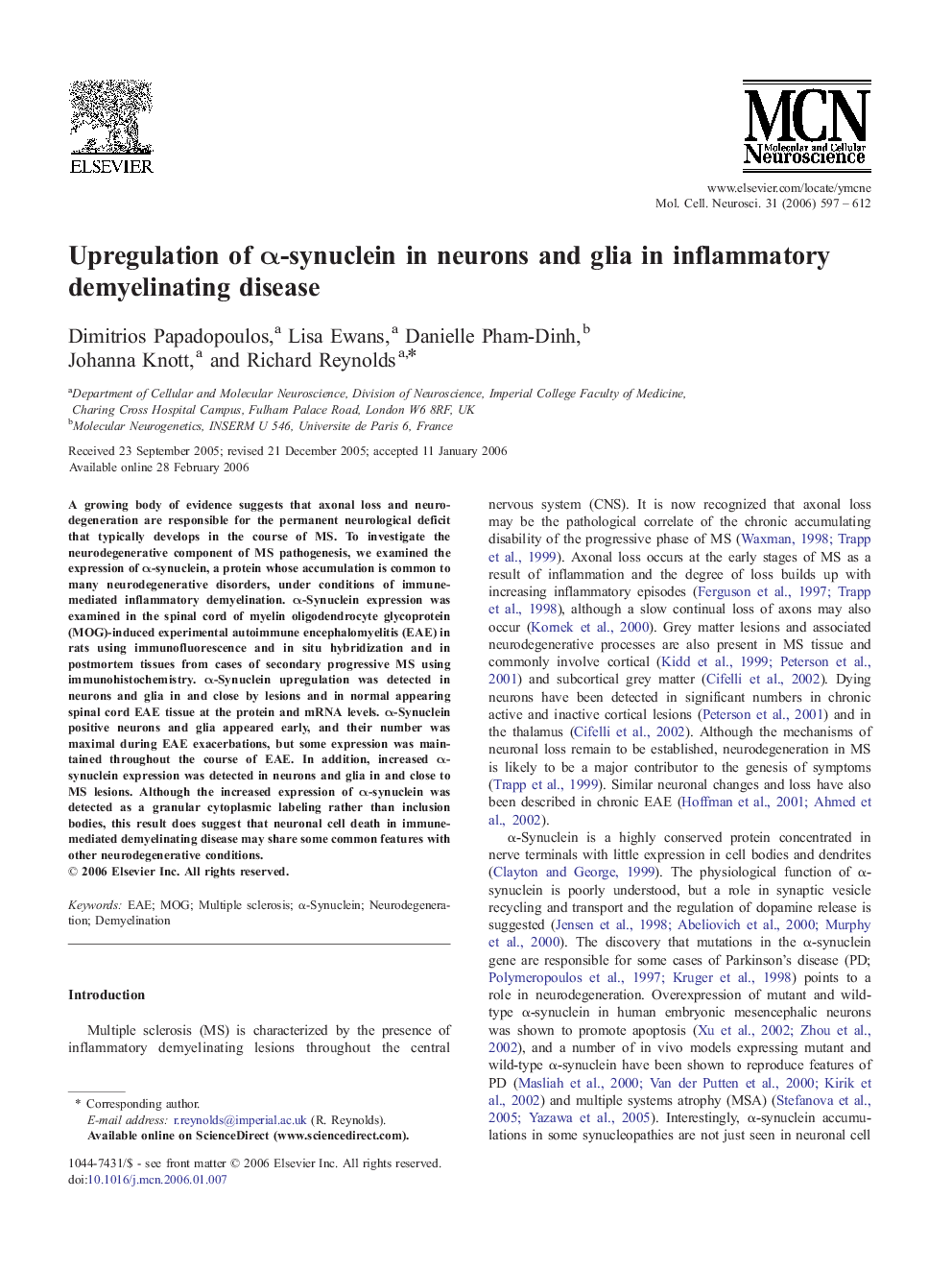| Article ID | Journal | Published Year | Pages | File Type |
|---|---|---|---|---|
| 2199480 | Molecular and Cellular Neuroscience | 2006 | 16 Pages |
A growing body of evidence suggests that axonal loss and neurodegeneration are responsible for the permanent neurological deficit that typically develops in the course of MS. To investigate the neurodegenerative component of MS pathogenesis, we examined the expression of α-synuclein, a protein whose accumulation is common to many neurodegenerative disorders, under conditions of immune-mediated inflammatory demyelination. α-Synuclein expression was examined in the spinal cord of myelin oligodendrocyte glycoprotein (MOG)-induced experimental autoimmune encephalomyelitis (EAE) in rats using immunofluorescence and in situ hybridization and in postmortem tissues from cases of secondary progressive MS using immunohistochemistry. α-Synuclein upregulation was detected in neurons and glia in and close by lesions and in normal appearing spinal cord EAE tissue at the protein and mRNA levels. α-Synuclein positive neurons and glia appeared early, and their number was maximal during EAE exacerbations, but some expression was maintained throughout the course of EAE. In addition, increased α-synuclein expression was detected in neurons and glia in and close to MS lesions. Although the increased expression of α-synuclein was detected as a granular cytoplasmic labeling rather than inclusion bodies, this result does suggest that neuronal cell death in immune-mediated demyelinating disease may share some common features with other neurodegenerative conditions.
